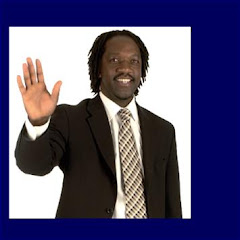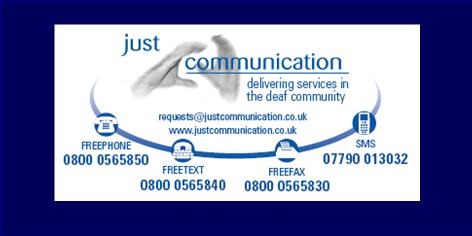The Crown has withdrawn criminal charges against Emomotimi Azorbo, the deaf man who says his Charter rights were violated when he was arrested at a G20 protest and then denied access to an adequate interpreter.
Azorbo, now 32, was watching a G20 protest near Yonge and College Sts. on June 25, 2010 when he failed to hear police commands and got in a physical confrontation with officers.
He was arrested and taken to the G20 temporary detention centre, where Azorbo says he was denied access to a professionally-trained interpreter — even though the Canadian Hearing Society had offered their services free of charge to Toronto police over the G20 weekend.
Azorbo was charged with assaulting police officers and resisting arrest and was scheduled to begin trial this week. But at the Finch Ave. courthouse Monday morning, Crown attorney Jason Miller withdrew all the charges.
“Pursuing a conviction of Mr. Azorbo for the assaults is, in the Crown’s opinion, unnecessary,” he said.
Azorbo signed a peace bond, agreeing to keep the peace for six months.
Miller told the court Azorbo was not involved in the protest and could not hear police instructions, nor could he effectively communicate to officers that he was deaf.
But Miller added he wanted to correct the “public record” created by the media’s portrayal of Azorbo as a blameless party when he was actually “confrontational” with police. He played two YouTube videos for the courtroom; one that captures Azorbo walking towards police and being struck and pushed away, only to re-approach the officers. What happens next is mostly obscured by the crowd.
“Despite being given a couple chances by police to calm down and walk away, Mr. Azorbo persisted in pushing police officers and finally shoved an officer aside who was blocking his progress,” Miller said. “Mr. Azorbo appeared at that time to be making a beeline at a specific officer he had his initial confrontation with. This caused police to place Mr. Azorbo under arrest.”
But Azorbo maintains that what police interpreted as aggression and “pushing” was merely his frustrated attempts at communicating with officers and defending himself.
“I was trying to explain that I was deaf,” Azorbo said Monday, speaking to the Starthrough an interpretation team that includes an American sign language interpreter and a deaf interpreter. “And then I was being pushed and all of a sudden I was taken down.”
Azorbo’s lawyer, Howard Morton, has also filed a Charter motion alleging his client was denied his constitutional rights, including his right to the assistance of an interpreter during legal proceedings.
Azorbo said that when he arrived at the detention centre, police failed to provide him with a professionally-trained interpreter. He was instead offered police officers who could only finger spell or had a minimal knowledge of American Sign Language, which Azorbo himself is still learning, having grown up in Nigeria using Nigerian Sign Language.
“I just kept saying, ‘I don’t want this to happen, I need an interpreter that I can understand and can understand me,’” he said. “I didn’t want to be misquoted. I didn’t want this police officer – who doesn’t understand sign language – being the one communicating for me because she wasn’t going to do me justice.”
Morton said his client was further denied access to interpreters at two of his subsequent court dates, when interpreters ordered by the judge failed to show up.
Gary Malkowski, with the Canadian Hearing Society, said his organization offered to provide Toronto police with interpreting services during the G20 weekend, paying thousands of dollars to keep qualified interpreters on standby. But when they offered interpretation services for Azorbo, they were denied, Malkowski said.
“There was not only a denial of rights, but an intentional denial of rights,” he said.
At the time of his arrest, Azorbo did not fully understand what his rights were.
He knows them now, however. And he thinks police should know them too.
“I assumed that the police would do right by me and have an interpreter,” he said. “I assumed that they would be aware of my rights and make sure I was protected. But they weren’t.”





